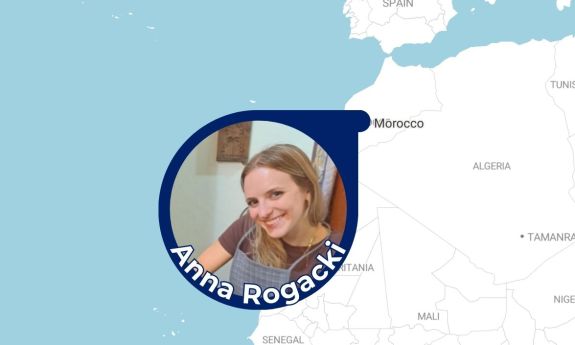Duke Diary Dispatch: Hello From Morocco


During the initial portion of our conversation, conducted in an exchange of French that was far from advanced, Mama talked about how she just loves being Moroccan and being a part of preserving the cultural heritage that has passed through her family and Morocco more generally. Her mother is originally from the Sahara, so for her, gnawa music and teaching her kids how to sing and dance to this music helps them to become active participants in their family’s traditions and celebrations. Beyond these specifics, there was more than a deep sense of national pride that Mama had for Morocco, something that we, as Americans, would likely understand as patriotism. She repeated over and over again, “Je t’aime Morocco.”
When my eldest host brother got home, the only family member with a functional understanding of English, he stood in as a translator for the conversation, although admittedly without much more success. I tried to ask more specific questions about citizenship and different forms of political activity, but it was to no avail. Every translated answer from my host mother was repeated back to me by my host brother, Amine as, “I love Morocco and being with my Moroccan neighbors.” Between the language barrier, even with translator, and the fact that neither Mama nor her husband were able to complete their secondary education, the questions I had planned to ask became useless for all intents and purposes, and the conversation I had expected to have did not come to fruition.
What we did end up talking about was soccer and the Moroccan national team. She talked about how exciting it was anywhere you went as the national team continued to progress through the World Cup and pointed to the cabinet with a missing mirror, explaining that her sons had broken it while celebrating Morocco’s win against Portugal. Even though her oldest son is a devout Real Madrid and Cristiano Ronaldo fan, his loyalties to Morocco took precedent.
My host family is not particularly religious, which stood in an interesting contrast to the previous conversations I had had about Moroccan citizenship that put Islam at the center of Moroccan citizenship. Mama wears a hijab, but the family doesn’t pray or go to Mosque. None of the boys went to Koranic school. Because of this the communal aspect that Moroccan citizenship and other Muslim-majority countries tend to orient their societies and thus understandings of citizenship by takes a different form. Cultural traditions, displays of national pride and participation within the community take the forefront. I think this may be the broadest understanding of Moroccan citizenship that can be viewed with and without the lens of religion and still be equally as applicable.